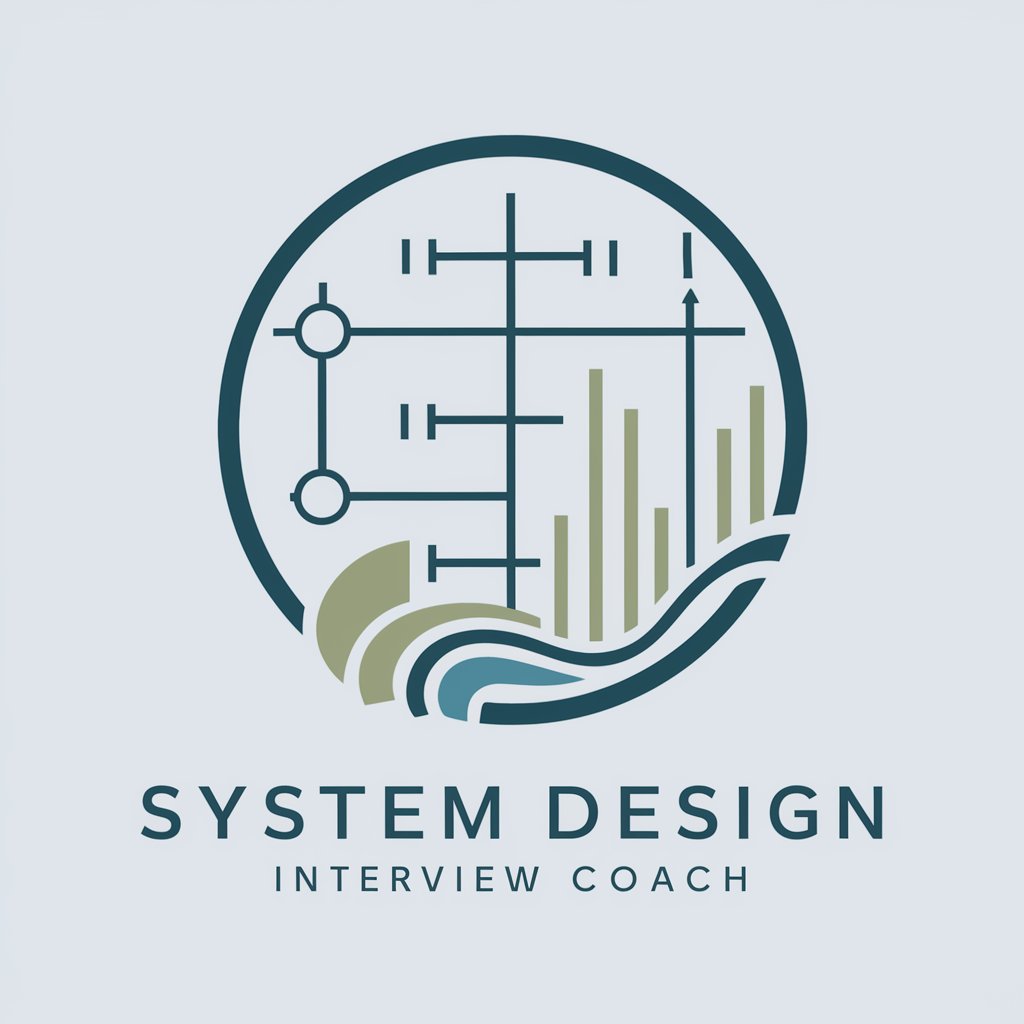
System Design Tutor - System Design Learning Platform

Welcome to System Design Tutor.
Master System Design with AI-Powered Guidance
Explain the trade-offs between consistency and availability in the CAP theorem.
Describe a scenario where partition tolerance is crucial in a distributed system.
How would you design a system to prioritize availability over consistency?
What are some real-world applications that require strong consistency guarantees?
Get Embed Code
Introduction to System Design Tutor
System Design Tutor is a specialized AI-driven platform designed to offer in-depth guidance and education on system design principles, methodologies, and best practices. It serves as a comprehensive resource for understanding the complexities of designing scalable, reliable, and efficient systems. The platform is equipped to cover a wide array of topics, from foundational concepts like the CAP theorem, databases, and networking to advanced system design topics such as microservices architecture, load balancing, and caching strategies. For example, a user seeking to understand the trade-offs between consistency, availability, and partition tolerance in distributed systems would find detailed explanations, scenarios where each principle is applied, and strategies to balance these aspects according to specific business requirements. Powered by ChatGPT-4o。

Main Functions of System Design Tutor
Educational Content and Tutorials
Example
Provides articles, tutorials, and case studies on system design topics like CAP theorem, explaining concepts with real-world applications.
Scenario
A software engineer preparing for a technical interview uses System Design Tutor to understand the CAP theorem's implications on distributed databases.
Interactive Q&A
Example
Users can ask specific system design questions and receive detailed, customized answers.
Scenario
A team lead at a startup is designing a new product feature and uses System Design Tutor to ask about scaling their application to support millions of users.
Scenario-Based Learning
Example
Presents users with hypothetical scenarios to apply system design principles, offering feedback on their solutions.
Scenario
A student learning about microservices architecture is presented with a scenario requiring the breakdown of a monolithic application into microservices, helping them to understand service discovery and inter-service communication.
Ideal Users of System Design Tutor Services
Software Engineers and Developers
Individuals looking to deepen their understanding of system design concepts, improve their skills for career advancement, or prepare for technical interviews.
Technology Team Leads and Architects
Professionals responsible for making architectural decisions, seeking resources to stay updated with best practices, and ensuring their team's designs are scalable, reliable, and efficient.
Computer Science Students
Learners seeking to complement their academic studies with practical, real-world system design knowledge, preparing them for careers in software development.

How to Use System Design Tutor
1
Start with a free trial at yeschat.ai, accessible without the need for login or a ChatGPT Plus subscription.
2
Choose your specific area of interest or challenge in system design to focus on, such as database design, scalability, or microservices.
3
Use the provided examples and templates to structure your questions or problems for more effective guidance.
4
Interact with the System Design Tutor by asking specific questions or presenting scenarios, and receive tailored advice and solutions.
5
Apply the recommendations in your project and revisit the tutor for iterative feedback or to tackle new challenges as they arise.
Try other advanced and practical GPTs
Trade GPT
Empower Your Trading with AI-Powered Analysis

Lumino-Salem
Enlighten Your Path with AI-Powered Spirituality

Auth Mentor
Navigating IAM with AI-Powered Expertise

ELI5 Buddy
Simplifying Complexity with AI

Newscaster GPT
AI-driven, timely news updates.

MatrixGPT (GPTs Finder)
Discover Your Ideal AI Tool Instantly

Watts Wisdom
Explore life's questions with AI-powered wisdom

Game Hack Pro
Unlock your gaming potential with AI-powered assistance.

Brand Booster
Elevate Your Story with AI

PolitiTutor
Master Politics with AI-Powered Insights

Money Mentor Pro
AI-Powered Personal Finance Expert

ArchitectAI
Empowering Your Code with AI-Powered Insights

Frequently Asked Questions about System Design Tutor
What makes System Design Tutor unique?
System Design Tutor stands out for its focus on practical, real-world system design challenges, offering personalized advice and solutions based on cutting-edge practices and principles.
Can System Design Tutor help with interview preparation?
Absolutely, it offers targeted preparation for system design interviews, providing insights into structuring your answers and understanding key concepts.
Does it support learning about distributed systems?
Yes, it covers distributed systems extensively, including topics like CAP theorem, data replication, and handling network partitions.
How can beginners make the most out of System Design Tutor?
Beginners should start with foundational topics provided by the tutor, use interactive examples to understand core principles, and progressively tackle more complex scenarios.
Is there support for advanced system design topics?
Definitely, for those with a solid foundation, the tutor delves into advanced topics like global scaling, consistency patterns, and optimizing for high availability and resilience.





